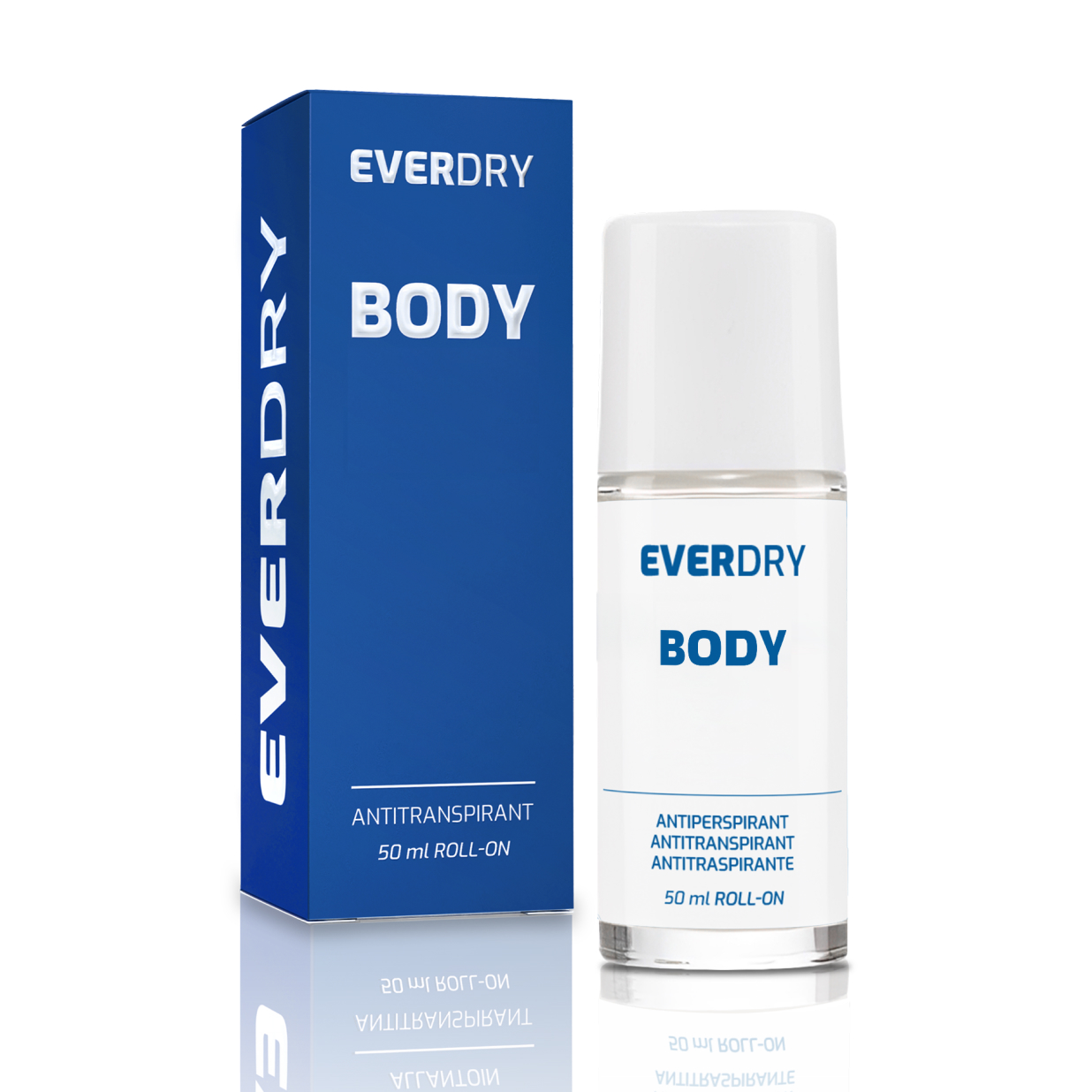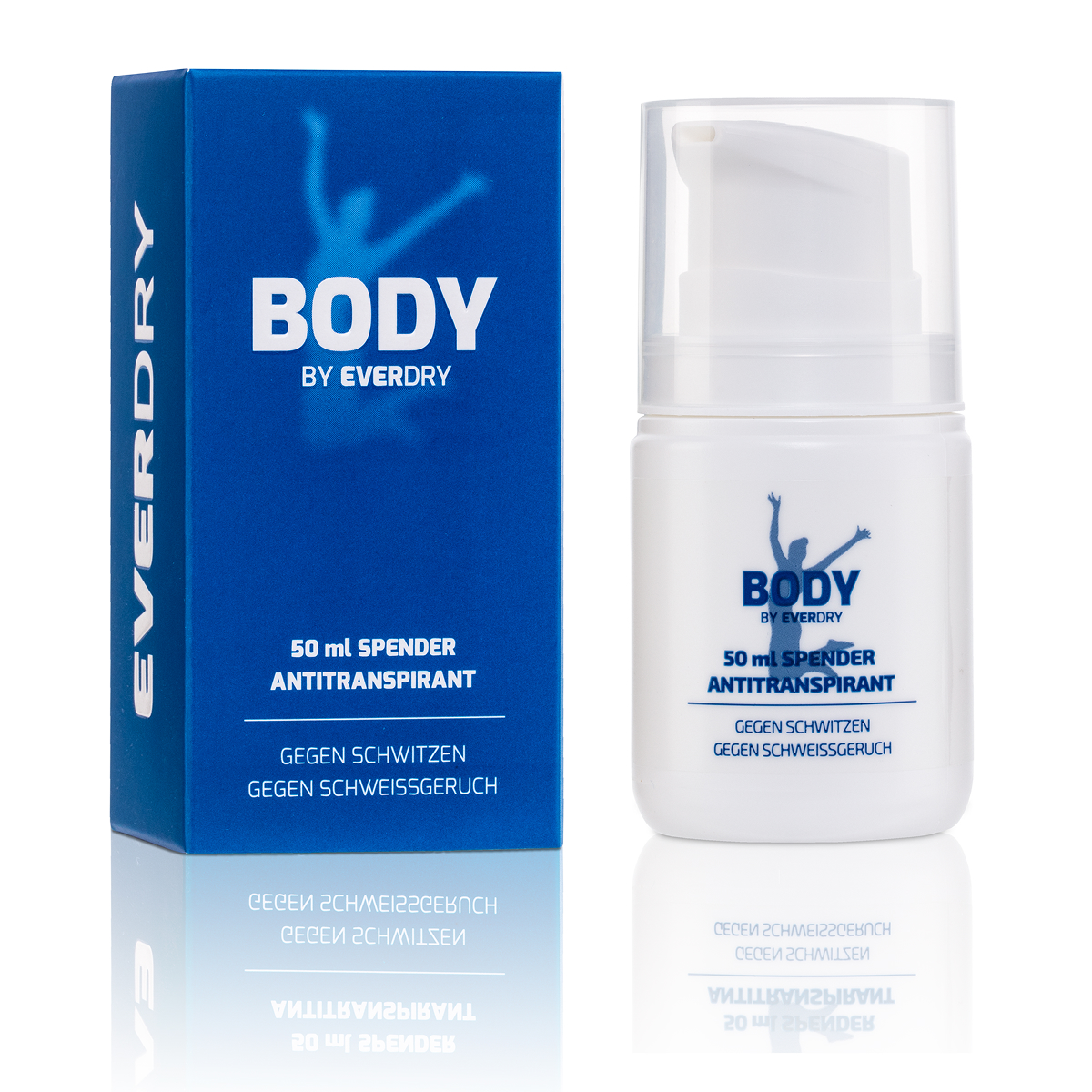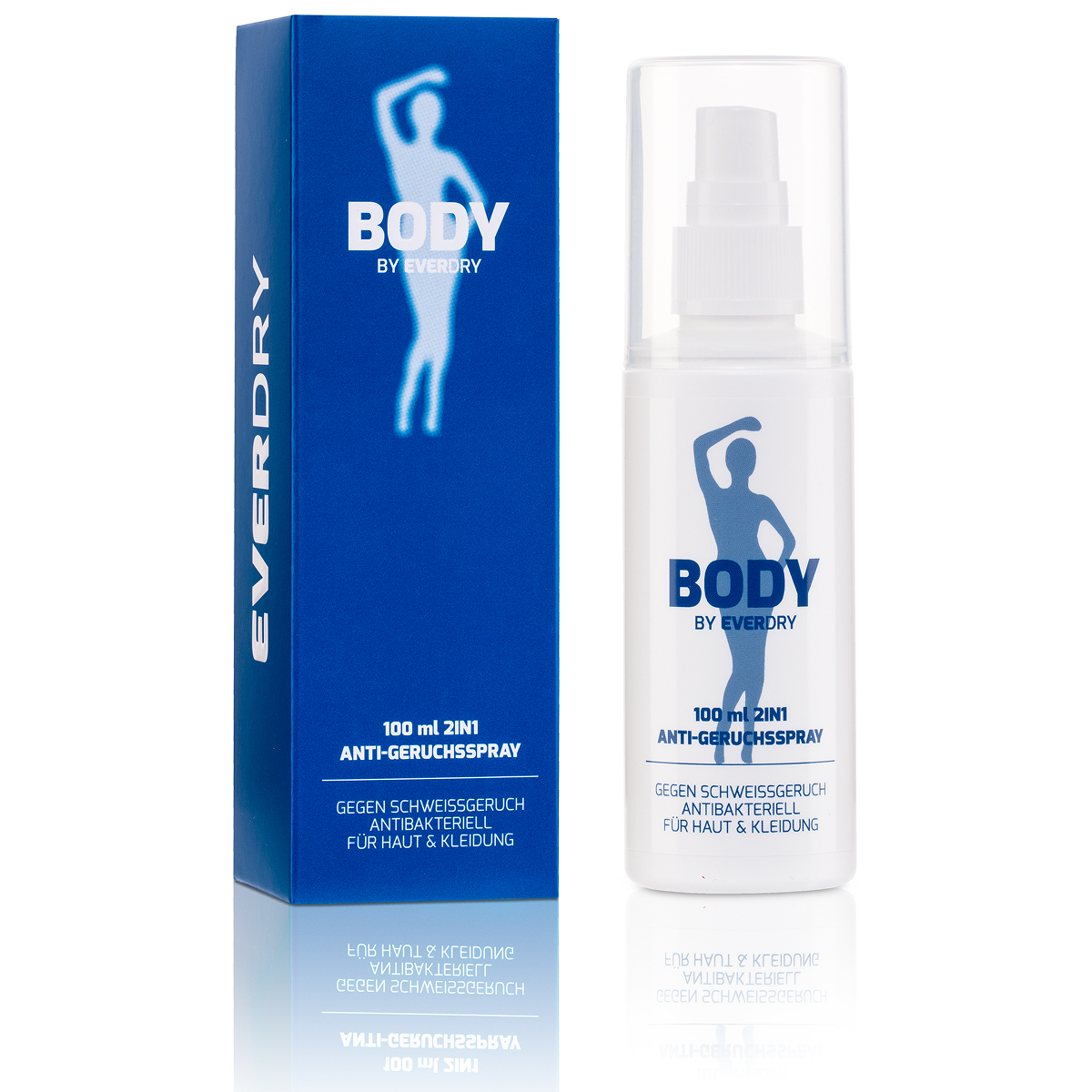- Antiperspirants
- Shirts, Socks, Pads
- Iontophoresis
- Anti-odour
- All Products
-
Guide
- Interesting facts about sweating
- Tips and tricks
-
The most common sweating triggers
- Sweating during exercise
- Carnival time without sweat
- Celebrate your wedding without sweat
- Sweating due to excess weight
- Sweat-free Easter
- Sweating in everyday life
- Sweating at work
- Sweating during menopause
- Sweating at night
- Sweating during pregnancy
- Sweating and odor in old age
- Sweating and stress
- Sweating while driving
- Sweating helps with fasting
- Sweating in spring
- Sweating in winter
- Off on holiday without sweating
- Sweating from head to toe
- PETA Certified
In a nutshell: Key takeaways
Sweating during exercise. Welcome, but not excessive and not everywhere!
This text explains why we actually want to sweat when we're doing sports. Active in your training, but not dripping wet all over the shop.
Why do we actually sweat during exercise?
Simple: because it's crucial for protecting the body from overheating! Sweat acts as the body's natural cooling system.
Sweating is as much a part of sport as hunger is to a diet. It's unpleasant, but unavoidable. However, not everyone sweats at the same rate or in the same amount. In our society, sweating is still a bit of a taboo subject and is often seen as uncomfortable and embarrassing in everyday life if noticed by others. When you train, you get your circulation going. This generates heat, which the body needs to regulate. The body's own cooling system is sweating. Around two to four million sweat glands on the human skin's surface, particularly on the feet, hands, and forehead, work daily and fulfil precisely this one important function: they protect the body from overheating. By secreting the salty fluid we call sweat, they moisten the skin, allowing evaporative cooling to occur. This is what keeps our body temperature constant or even lowers it if necessary. The sweat evaporates on the skin's surface, providing cooling.
Who sweats more? Athletes or non-athletes?
The assumption that athletes sweat less than people who don't do sport due to their better-trained bodies is persistent, but it's a misconception. In fact, athletes secrete almost twice the amount of sweat during physical activity compared to untrained individuals. But why is this? It's simple: because the body is being cooled. When an athlete trains, their sweat glands also get trained. The body adapts. It provides more extensive cooling during exertion, leading to greater and improved performance. We commonly refer to this as "having good fitness".
While the sweat glands of an untrained person are slow to get going, those of an athlete know shortly after starting training that they will soon have to work at full speed and start their activity earlier.
So, trained athletes tend to sweat faster. But it's much more efficient. This is because trained sweat glands can better assess the amount of water needed and don't release too much fluid, and therefore fewer minerals. You remain capable for longer. The cooling system works better and more effectively in athletes. Since you start sweating sooner, your body temperature also rises later and more slowly.
Athlete tips for heavy sweating
Sweating is therefore a completely normal bodily reaction and even positive in terms of performance. Nevertheless, there are a few things that athletes should consider when experiencing significant sweat loss.
- It goes without saying: sweat loss means fluid loss. Drinking enough about an hour before training, as well as during exercise if needed, is essential. Whether drinking beyond thirst is necessary is a point of contention among sports scientists. However, some believe that the body provides sufficient early signals when it's lacking something – in the case of fluid deficiency, naturally in the form of thirst.
- The taste of sweat reveals that it's not just pure water that's lost through sweating. Minerals, especially sodium and iodine, are also excreted in sweat. A nutrient balance should therefore be maintained in a normal diet, but especially during high athletic performance – for example, by lightly salting your water. Special sports drinks can also balance the nutrient levels. Isotonic drinks, in particular, can be absorbed very quickly by the body because their osmotically active particles correspond to those of human blood. A proven sports drink is therefore also alcohol-free beer. Beer with alcohol content is not recommended as alcohol has a dehydrating effect.
- To avoid catching a cold, clothing also plays an important role. Special sportswear is designed to wick sweat away, preventing heat build-up under clothing even in winter. Attention should also be paid to optimal temperature circulation in everyday clothing. Incorrect clothing is often a contributing factor to unpleasant sweat odour and increased sweat production. Sweat can hardly escape through these fibres, allowing bacteria on the skin's surface to decompose the sweat more easily, leading to the characteristic sweat smell.
Declare yourself the winner in every situation!
Whether you're battling the weights in the gym, working as a team in a sport, or running alone against your personal best, during exercise, both mind and body reach their limits. Sweating is a natural and important process in this. Perspiration cleanses skin pores and cools the body. Nevertheless, sweat flow should not be an obstacle – or even lead to skin irritation, eczema, or itching. Don't let it stop you from achieving your peak performance!
Everdry supports your body with targeted regulation of sweat and unpleasant body odour and specifically cares for irritated or itchy skin areas without affecting important bodily processes. Everdry products effectively protect against sweat wetness, reliably prevent unpleasant odour formation, and care for the skin in case of irritation, eczema, dryness, or neurodermatitis.
First published: 12.05.2011
Updated: 27.05.2025

Content: 0.05 Liter (€398.00 / 1 Liter)

Content: 0.05 Liter (€398.00 / 1 Liter)



